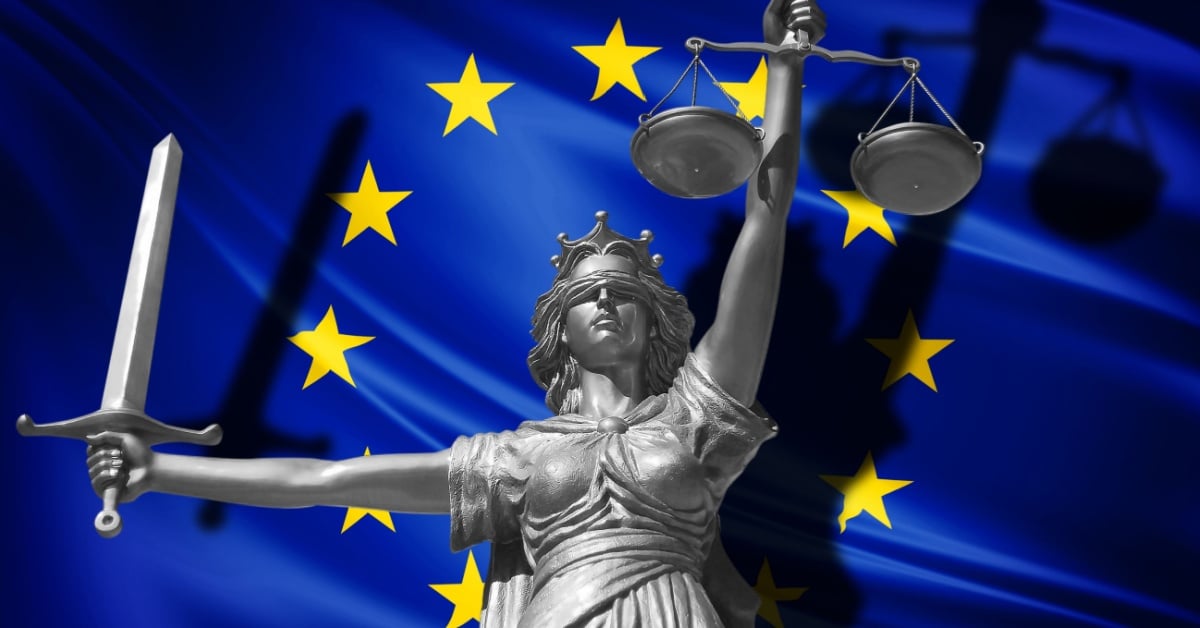Top EU Court Overturns Intel's Billion-dollar Antitrust Fine

Intel has a spot of good news for a change. The EU Court of Justice has upheld an earlier ruling that canceled a €1.06 billion ($1.1 billion) fine against the chipmaker imposed in 2009 for anti-competitive practices.
The Court of Justice is the highest court of the European Union, and it has now dismissed an appeal by the European Commission against a ruling in 2022 by the General Court that found fault with parts of the original case and annulled the fine against Intel.
The case goes back to events decades ago, around the turn of the millennium, and concerns rebates and payments that Intel gave to its customers in the PC market as incentives for them to use its products instead of those from rivals such as AMD.
In its 2009 decision, the Commission found that the Santa Clara megacorp had engaged in two specific forms of illegal practices. These comprised wholly or partially hidden rebates to computer makers on condition that they bought all or most of their CPUs from Intel – so-called "conditional rebates."
However, it was also found to have paid PC companies to halt or delay the launch of specific products containing rival chips and to limit the sales channels available to these products – so-called "naked restrictions."
This distinction is important because the current judgment applies to the "conditional rebates," but not the "naked restrictions."
Intel launched an appeal in 2012, but this failed when the General Court upheld the Commission's decision in 2014. The chipmaker then tried again, appealing to the Court of Justice, which sent the case back to the General Court for reconsideration in 2017.
The second time around, the General Court took a closer look at the Commission's arguments, and in 2022 ruled that in the findings related to Intel's conditional rebates, the Commission had not properly applied tests for determining if these had in fact restricted competition, and overturned the fine.
It was then the Commission's turn to appeal the judgment regarding Intel's conditional rebates, but this has now been upheld by the Court of Justice.
- Ex-Intel board members make an ill-conceived case for spinning off Foundry
- It's about time Intel, AMD dropped x86 games and turned to the real threat
- Spectre flaws continue to haunt Intel and AMD as researchers find fresh attack method
- Intel hits back at China's accusations it bakes in NSA backdoors
But the 2022 General Court ruling confirmed that Intel's naked restrictions amounted to an abuse of dominant market position under EU competition rules. Because of this, the Commission imposed a new fine of €376.36 million (about $400 million) against Chipzilla in September of last year.
It isn't clear if Intel will be able to make this separate fine go away as well.
A spokesperson for the European Commission told us: "The Commission appealed the part of the 2022 judgment of the General Court concerning Intel's conditional rebates. Therefore, today's judgment concerns only those. On the other hand, given that the part of the 2022 General Court judgment concerning the naked restrictions has not been appealed by Intel, it has become final."
The spokesperson added: "We will carefully analyze the judgment by the Court of Justice."
However, The Register understands that an appeal by Intel against the €376.36 million fine is pending, although the company has not confirmed this.
"We are pleased with the judgment delivered by the Court of Justice of the European Union today and to finally put this part of the case behind us," an Intel spokesperson said. ®
From Chip War To Cloud War: The Next Frontier In Global Tech Competition
The global chip war, characterized by intense competition among nations and corporations for supremacy in semiconductor ... Read more
The High Stakes Of Tech Regulation: Security Risks And Market Dynamics
The influence of tech giants in the global economy continues to grow, raising crucial questions about how to balance sec... Read more
The Tyranny Of Instagram Interiors: Why It's Time To Break Free From Algorithm-Driven Aesthetics
Instagram has become a dominant force in shaping interior design trends, offering a seemingly endless stream of inspirat... Read more
The Data Crunch In AI: Strategies For Sustainability
Exploring solutions to the imminent exhaustion of internet data for AI training.As the artificial intelligence (AI) indu... Read more
Google Abandons Four-Year Effort To Remove Cookies From Chrome Browser
After four years of dedicated effort, Google has decided to abandon its plan to remove third-party cookies from its Chro... Read more
LinkedIn Embraces AI And Gamification To Drive User Engagement And Revenue
In an effort to tackle slowing revenue growth and enhance user engagement, LinkedIn is turning to artificial intelligenc... Read more

